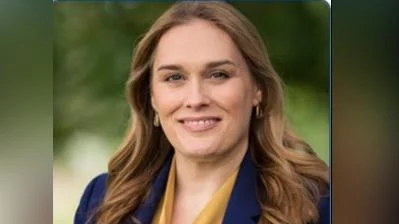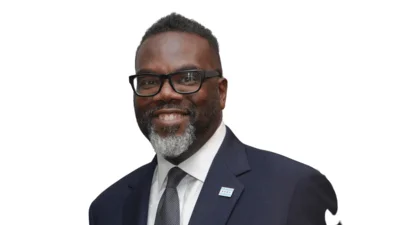Citing worrisome data that indicates millennials are fleeing the state and taking their families with them, a Chicago-based think tank is urging state lawmakers to pass pro-growth reforms.
"If young people are our future, Illinois is in trouble," Illinois Policy Institute writer Madelyn Harwood said in a recent report published by the institute. "State policymakers need to correct the policies that could be contributing to this mass millennial departure. Illinois’ anti-jobs policies, crushing tax burden and looming pension crisis make the state uncompetitive and unattractive."
Legislators in Springfield need to act, Harwood said.
"Illinois policymakers should heed the grave consequences of a shrinking youth population and enact job-creating reforms so millennials can not only afford to, but also be proud to build futures in Illinois," Harwood said.
The state in general is verifiably shrinking across the board, with 50,000 more taxpayers and their dependents leaving the state than were gained through new migration into the state, according to the latest data available from the Internal Revenue Service. There also is data that indicates millennials are leading that exodus, Harwood said.
"While more than 70,700 taxpayers under the age of 34 moved into Illinois, more than 89,600 moved out," Harwood said. "This amounts to a net loss of almost 19,000 millennials in 2014, and more than one-third of the state’s 50,000 net loss to migration across all age groups."
Students especially are leaving Illinois in great numbers. For the same period as the IRS reported, more than 16,400 students left Illinois for public universities in other states, while only about 2,100 students came to Illinois from out of state to attend a public university, according to Department of Education data compiled by The New York Times. "This amounts to a net loss of more than 14,300 students to other states," Harwood said. "Illinois sends the most college students to neighboring Midwestern states, including Missouri, Iowa, Indiana, Wisconsin and Michigan."
Only California lost more students than Illinois, according to the data. "But Illinois had a greater net loss," Harwood said. "California also gained more than 4,600 students, for a net loss of more than 12,500, while Illinois’ net loss was more than 14,300. The combined net loss of millennial taxpayers and students to other states in 2014 amounts to more than 33,000 young Illinoisans, and that’s just for one year."
The IRS data does not necessarily count all millennials lost from Illinois because a young person who leaves the state for work straight out of high school and never paid taxes in Illinois would not be counted. Fleeing millennial students also may be counted in both DOE and IRS data reports, which could cause some inflation in numbers.
"The DOE data also only measured public universities, so it does not account for student migration for private universities," Harwood said. "Nevertheless, the trend is clear: Young people are leaving Illinois, and policymakers need to ask themselves why the state is so unattractive to these young people."
The state needs these millennials, Harwood said.
"Fewer millennials means fewer working-age adults -- or fewer taxpayers-- to cover the state’s soaring pension burden, which will be a growing problem as more of Illinois’ population reaches retirement age," she said.
The Illinois Policy Institute is an independent group that generates public policy solutions aimed at promoting personal freedom and prosperity in Illinois.
Before joining the Illinois Policy Institute, Harwood was a caseworker with a focus on corporate immigration law at a Chicago immigration law firm, according to her institute bio. Harwood also interned at the Heritage Foundation in Washington, D.C., where she specialized in domestic and economic policy. While on an internship, Harwood also studied at Georgetown University School of Continuing Studies, concentrating on public policy and academic research. Harwood graduated summa cum laude from DePaul University in 2014 with a bachelor's degree in political science and a minor in Spanish.






 Alerts Sign-up
Alerts Sign-up